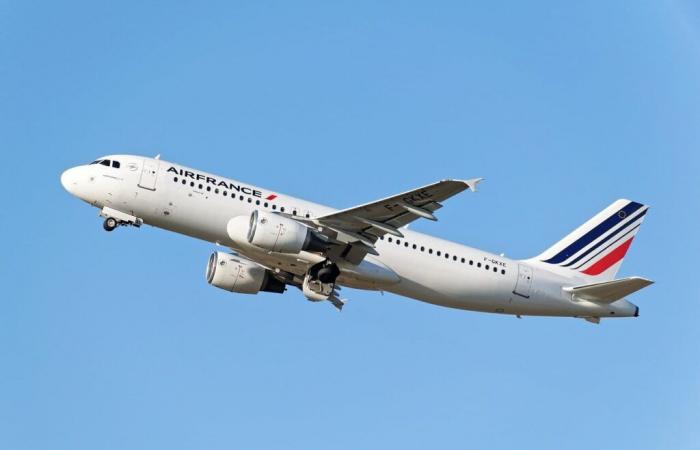
Air France-KLM is positioning itself as a model of ecological transition in aviation, with a target of 10% sustainable fuels in its tanks by 2030, surpassing European requirements. A dynamic welcomed by the Transport & Environment observatory, which nevertheless points to the structural weaknesses of the sector.
Sustainable aviation, a sector still lagging behind
In its very first report on sustainable fuels (SAF), the Transport & Environment (T&E) organization draws a harsh observation: among the 77 airlines analyzed, only 10 are actively committed to reducing their carbon footprint through alternatives to fossil kerosene. « The other 67 either do not take this turn, or rely on unviable options such as SAF from food crops », Specifies the group based in Brussels.
SAF, produced from biomass, used oils or, ultimately, e-kerosene made from hydrogen and carbon-free electricity, are nevertheless identified as one of the main levers for achieving objective of zero net CO2 emissions by 2050. However, their adoption remains marginal in a sector still too dependent on fossil fuels.
In this contrasting landscape, Air France-KLM stands out with an ambitious policy. The Franco-Dutch company has integrated advanced biofuels into its operations, such as those made from waste such as cooking oils. With a target of 10% SAF in its fuels by 2030, it far exceeds the 6% set by the European Union.
A responsibility shared by the entire airline industry
This strategy has earned it a leading position in the T&E rankings, where it is ahead of companies like United Airlines and Norwegian. Jérôme du Boucher, aviation manager at T&E France, applauds these efforts while urging the entire sector to put more pressure on fuel suppliers. “ Companies must demand truly sustainable alternatives and denounce practices that do not promote a serious ecological transition. “, he insists.
However, T&E reminds that companies are not the only ones who need to evolve. Large oil groups like TotalEnergies, BP or ExxonMobil, which control most of production, remain reluctant to invest massively in SAF. According to the observatory, their cumulative production would barely reach 3 million tonnes in 2030, or less than 3% of their current volumes intended for aviation. The market, still dominated by start-ups and small players, lacks funding to scale up to an industrial scale.
For the collective ambition of low-carbon aviation to become a reality, it is urgent to combine the efforts of companies, suppliers and political decision-makers. Air France-KLM is leading the way, but the entire sector will have to align to meet this major environmental challenge.





